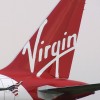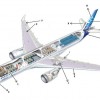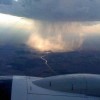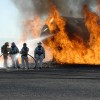Passengers with Special Needs
Flight Attendants
Passengers with special needs
Aim
- Practice English skills in an aviation context
- Revise or learn vocabulary surrounding passengers with special needs (level: difficult)
- Have fun!
While some passengers may think that flight attendants are standing by to top up drinks and bring more peanuts, you will no doubt be aware that the role of a flight attendant is that of a trained professional, onboard to ensure security and safety of passengers. Passengers who identify as having special needs (that fall under the categories of special needs as defined by each airline) will require specific attention.
Why is it important?
Being able to attend to specially identified needs means
- An enhanced level of service
- Increased customer comfort and satisfaction
- Increased customer safety and wellbeing
- An accessible, non-discriminatory service
Generally, but depending on the airline, ‘passengers with special needs’ includes:
- Passengers with specific medical needs, such as medication or a stretcher
- Passengers with reduced mobility, including passengers with wheelchairs
- Passengers with vision or hearing impairments
- Passengers with conditions such as autism or cerebral palsy
- Infants and children
- Pregnant women
You might also hear the terms ‘special attention’ or ‘medically compromised’.
What does it mean for flight attendants?
Flight attendants are generally trained to:
- Understand the different categories of passengers with special needs and different kinds of care required
- Identify and respond to the needs and expectations of passengers with special needs. This might include such things as accommodating a guide dog, using correct lifting techniques or providing toilet assistance, and it always includes use of appropriate verbal and non-verbal communication.
- Conduct individual pre-flight/emergency briefings on safety and general issues.
- Brief other cabin crew regarding any passengers with special needs onboard.
- Follow and apply procedures such as Civil Aviation Regulations and Standards
- Respond appropriately to any signs of discomfort or distress
Let’s look at Virgin Blue’s approach to passengers with special needs.
Link to Virgin Blue Special Needs and Assistance
Comprehension
- Virgin Blue’s Independent Travel Criteria states, “Any Guest who:
- is able to understand and respond to briefings about emergency procedures; and
- does not require personal assistance during flight beyond that described below,
may travel ____________________.”
2. What does UNMR stand for?
3. Medical clearance is required for a single pregnancy after _____ weeks.
4. Due to Occupational Health & Safety Law, we are unable to transfer guests who weigh more than _____kg.
5. How many guide dogs can be accommodated on each flight?
It’s also important to note that language used to describe and discuss special needs does change over time. Terms have changed to reflect changing attitudes in society. One of the changes in language is the move to using “people first” language, which means that the language focuses not on the disability but on the person.
In the following list of affirmative, people-first phrases, notice how the language is all about the person. Included in red and listed as negative phrases are terms that were once considered acceptable but are not appropriate.
It is important to note that flight crew may substitute the word ‘person’ with ‘passenger’, while airlines might also use the terms customer, guest or traveller.
| Affirmative Phrases | Negative Phrases |
| Person with intellectual disability | Retarded, mentally defective |
| Person who is blind, person who is visually impaired | The blind |
| Person with a disability | The disabled, handicapped |
| Person who is deaf, person who is hard of hearing | Suffers a hearing loss, the deaf |
| Person who has multiple sclerosis | Afflicted by MS |
| Person with cerebral palsy | CP victim |
| Person with epilepsy, person with seizure disorder | Epileptic |
| Person who uses a wheelchair | Confined or restricted to a wheelchair |
| Person who has muscular dystrophy | Stricken by MD |
| Person who is physically disabled | Crippled, lame, deformed |
| Person without a disability | Normal person (implies that the person with a disability isn't normal) |
| Unable to speak, uses synthetic speech | Dumb, mute |
| Seizure | Fit |
| Person with psychiatric disability | Crazy, nuts |
Source: The President's Committee on Employment of People with Disabilities
Vocabulary
- A passenger travelling with her guide dog would be a passenger who is…..
- A passenger using sign language to communicate might be a passenger who is…..
- A passenger with epilepsy may warn you he is about to have a…..
- A passenger communicating with you via a pen and paper or speech device might be a passenger who…..
- A passenger travelling under the care of a psychiatrist might be a passenger with…
Answers
Comprehension
- Unaccompanied
- Unaccompanied minor
- 36 weeks
- 130kg
- 2
Vocabulary
- …visually impaired /vision impaired, or blind
- …hard of hearing, hearing impaired, or deaf
- …seizure
- …is unable to speak, uses a synthetic speech/a speech device
- …a psychiatric disability

















Recent Comments